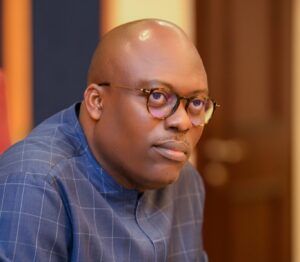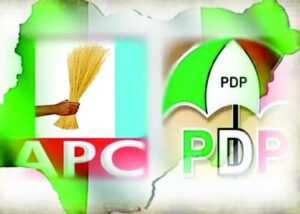
The importance of funding for inclusive education: A call to action for State Govt
As we witness the efforts of the Ekiti and Lagos State governments in addressing the challenges faced by Persons With Disabilities (PWDs), we cannot help but commend their initiatives.
The rollout of programs aimed at promoting inclusivity and accessibility is a welcome development, and we applaud the commitment of these state governments to creating a more inclusive society.
The celebration of Governor Babajide Sanwo-Olu’s 59th birthday with 250 children living with disabilities and their teachers is a heartwarming gesture that highlights the importance of inclusivity.
However, we must not rest on our oars. While the establishment of three special schools in Ekiti State for the blind, deaf, and physically challenged and intellectually disabled is commendable, we urge the government to go further.
The revised 2017 National Policy on Inclusive Education must be fully implemented to ensure that PWDs have access to quality education.
Inclusive education is not only a fundamental right but also a crucial step towards creating a society that values diversity and promotes equal opportunities for all.
We call on the government to prioritise inclusive education by providing the necessary resources and support to ensure that PWDs have access to quality education.
As we commend the Ekiti and Lagos State governments, we urge them to continue pushing the boundaries of inclusivity and accessibility. Let us work together to create a society that values and empowers PWDs, and provides them with the opportunities they deserve to thrive.
We, therefore, applaud the efforts of the Ekiti and Lagos State governments in promoting inclusivity and accessibility. We urge them to continue on this path and work towards creating a society that is truly inclusive and accessible to all.
Inclusivity is a transformative approach that brings together individuals with disabilities and those without, in a shared learning environment. This approach is championed by UNESCO and other international organisations, who recognise its potential to provide equal opportunities for all children to thrive.
Nigeria’s 2017 National Policy on Inclusive Education echoes this vision, defining inclusive education as a process that removes barriers and provides access to quality education for all learners.
This policy acknowledges that inclusive education is not just about providing access to education, but also about addressing the diverse needs of all learners. It recognizes that certain groups of learners are more vulnerable to exclusion, including those who are excluded from education, living in poverty, or experiencing physical or psychological abuse.
Additionally, it highlights the needs of learners who are affected by health challenges, such as HIV or AIDS, or those who are from families struggling with addiction or substance abuse.
Moreover, inclusive education seeks to address the needs of learners who have temporary learning challenges, those who have dropped out of school, and those who learn differently. It also recognises the needs of learners with impairments or disabilities, as well as those who experience barriers to learning caused by factors other than impairments. Furthermore, it acknowledges the social and emotional challenges faced by learners, including girls who are pregnant or have given birth.
The ultimate goal of inclusive education is to eliminate social exclusion and promote diversity in all its forms. By providing equal opportunities for all children to learn to the best of their abilities, we can break down barriers and create a more inclusive society. Assistive technology becomes an essential tool in this journey, enabling children with special needs to access education on an equal footing with their peers.
While addressing disability issues is a challenge that many countries, including Nigeria, face, it is crucial that we continue to work towards creating a more inclusive society.
People with disabilities deserve to live fulfilling lives, free from depression, social marginalisation, and isolation. By prioritising inclusive education, we can make a meaningful difference in their lives and create a brighter future for all.
In Nigeria, inclusive education is still in its infancy, facing numerous challenges that hinder its progress.
Despite the existence of inclusive education policies in only five states, including Kaduna, Kwara, Lagos, and Enugu, the practice remains limited. Lagos State, for instance, has been implementing inclusive education since 2003, but it has only recently expanded to 44 schools, a mere fraction of the total number of schools in the state.
The scarcity of special needs schools is another significant issue, with only 1,177 schools catering to children with disabilities across the country. Kano, Kaduna, and Lagos have the highest number of special needs schools, but even these states have a long way to go in ensuring that all children have access to quality education.
One major obstacle to the implementation of inclusive education is the lack of funding. The Universal Basic Education Commission (UBEC) provides funds for states to implement inclusive education, but many states are unwilling to provide the required counterpart funding to access these funds.
This lack of commitment to inclusive education perpetuates the marginalisation of children with disabilities and hinders the country’s developmental progress.
Inclusive education is not only a moral imperative but also a vital component of a well-rounded education. It prepares students for the diverse society they will encounter as adults, teaching them valuable skills such as empathy, understanding, and acceptance.
As we strive for a more inclusive society, it is essential that state governments recognize the importance of prioritising the educational and health needs of their citizens, particularly those with disabilities.




